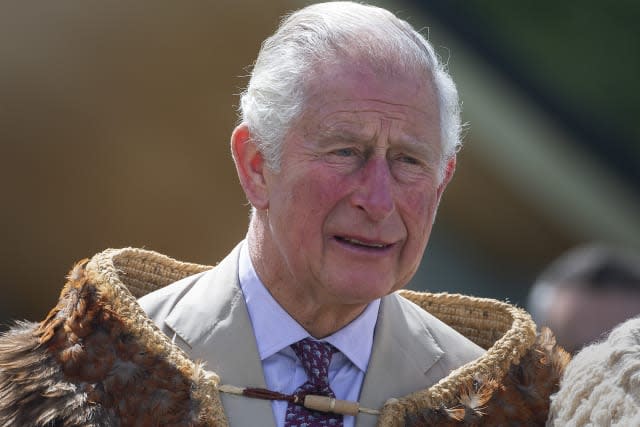Charles warns of tipping point over ‘climate and biodiversity emergency’

Humans have been on a “dizzying spending spree for centuries” with the planet’s resources and we are facing a “climate and biodiversity emergency”, the Prince of Wales said.
Charles was addressing an audience at Lincoln University during his tour of New Zealand and said humanity was at “a tipping point” with only a small window left before the planet’s fate would be out of our hands.
The prince also appeared to allude to the movement started by Swedish activist Greta Thunberg, saying that children were “demanding immediate action and not just words”.
Charles delivered a keynote address on environmental issues in which he said: “If we were to think about nature and her assets as humanity’s own bank account, it is clear that we have been on a dizzying spending spree for centuries.
“We now find ourselves dangerously overdrawn and urgently need to figure out how we are going to repay the mounting debt.
“And, if we were to think of this planet as a patient, any self-respecting doctor would long ago have made a precautionary intervention on the basis of the symptoms displayed.”
The prince added that the world had to start acting in the interests of future generations.
He said: “For the past 40-50 years, I have been driven by an overwhelming desire not to be confronted by my grandchildren demanding to know why I didn’t do anything to prevent them being bequeathed a poisoned and destroyed planet.
“Now, of course, we are indeed being confronted by these very children, demanding immediate action and not just words. How much longer therefore can we dither and delay?

“It is not simply the case that we face an urgent global crisis, in fact a climate and biodiversity emergency. That has been clear for some time, as many of us have been trying to say for years.
“We have, I’m afraid, reached a defining moment in our human history, a tipping point, at which we still have the ability to change course, but really only in the next 10 years, so a very small window, after which there may be no going back.”


